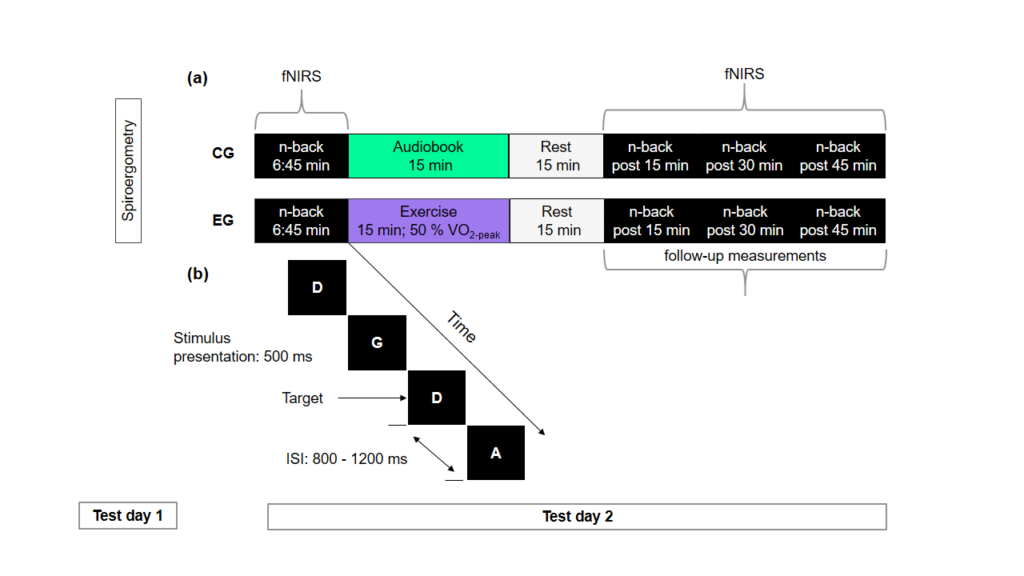A growing number of studies have reported beneficial effects of acute moderate exercise on executive functions. That is, acute exercise induces physiological changes (e.g. increased cerebral perfusion) which potentially improve cognitive performance. However, the persistence of these enhancements and their neural substrates have yet to be elucidated. The aim of this study was to extend this research field by investigating whether exercise-related cortical hemodynamic changes in older adults correlate with changes in cognitive performance in a working memory task (n-back task).
We used a letter 2-back task to investigate the effect of an acute bout of moderate-intensity exercise (50% VO2-peak) on working memory performance at different time points after exercise cessation. Cortical activation was assessed by means of functional near-infrared spectroscopy (fNIRS) to investigate how changes on the behavioural level are linked to cortical hemodynamic changes in frontal (DLPFC/VLPFC) and parietal (IPL/SPL) brain regions. Participants in the experimental group performed the n-back task before exercising at 50 % of their VO2-peak for 15 min on a stationary bicycle as well as 15 min, 30 min and 45 min after exercise cessation. In the control group participants listened to an audiobook for 15 min instead of exercising.

The corresponding article “Shedding Light on the Effects of Moderate Acute Exercise on Working Memory Performance in Healthy Older Adults: An fNIRS Study” has been published in the Special Issue “Studying brain activity in Sports Perforemance” in Brain Sciences.
Project team: Katharina Stute, Nicole Hudl, Robert Stojan, Claudia Voelcker-Rehage
Project status: Finished